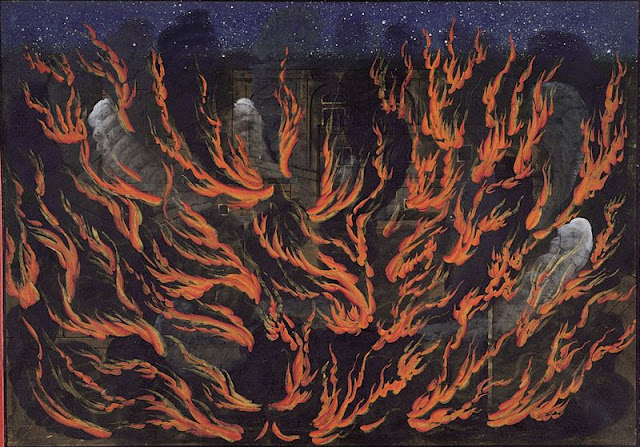Reading Notes: PDE Mahabharata, Part B
The Palace of the Pandava Brothers
Image Source: Wikimedia Commons
The escape from the house of fire has one element which bothers me tremendously: the low-caste beggar family who is drugged and allowed to burn up. The treatment of low-to-no-caste peoples, already seen in the Ekalavya incident, is further highlighted by the actions of the Pandavas and their mother. Escaping from their crazy cousin? That is morally acceptable. Basically murdering a family of six to do so? That is morally reprehensible. I realize that India of bygone times utilized a caste system which had no regard for the lives of those below a certain rung, but Pandavas have now ceased to be a noble family for me. Did they cheerfully consign the beggar family to death? Was it a group decision, or a suggestion that everyone else decided to follow? Were they even slightly aghast at what they had done? The Pandavas supernatural origins could possibly displace feelings of guilt or shame over their treatment of "mere" humans, but what about Vidura? His humble birth and compassionate nature (after all, he was the one who decided to rescue the Pandavas in the first place) are at odds with the execution of the rescue of the Pandvas.
Here's my story idea: Vidura is haunted by the events of that night. Perhaps he regrets how things happened, perhaps he locates the extended family of the beggars, and perhaps he finds solace in becoming an anonymous benefactor. His reputation, according to Wikipedia, is "a paragon of truth, dutifulness, impartial judgement and steadfast dharma." I have to believe that he was shaken by the deaths caused in the escape of the Pandavas, and I would like to flesh out the consequences he could experience.
Image Source: MaxPixel
I was also intrigued by Karna. I pictured a child who treated the sun as a person (which does make sense considering his parentage), and I wonder how other children would react to this strange boy who talked to the sun. Quite a bit of his sun-related antics are detailed in the Part A PDE Mahabharata, but continue in Part B, the current section for this week's reading. His divine parentage through Surya has given him a unique bond with the sun, but this is not always made clear to those around him. This could be fun and silly in a modern setting; what if a teacher calls a conference with his adopted parents because he insists on taking the window seat to see the sunshine? How would other children treat him?
Bibleography
The House of Fire, The Indian Heroes, C.A. Kincaid
Draupadi's Swayamwara, Indian Myth and Legend, Donald A. Mackenzie




Comments
Post a Comment